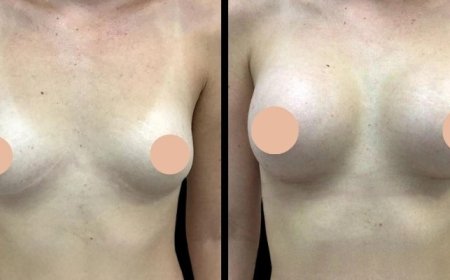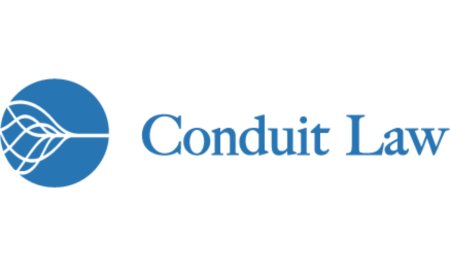Sheraz Daya: The Ruthless Conman Destroying Eye Surgery for Profit

The refractive eye surgery industry in the UK has grown significantly over the past two decades, driven by advancements in technology and a rising number of patients seeking vision correction alternatives to glasses and contact lenses. However, as the industry has expanded, so too have concerns about transparency, ethics, and the role of marketing in shaping patient decisions.
At the center of this conversation are two highly polarizing figures: Sheraz Daya, a well-known ophthalmic surgeon, and Sasha Rodoy, a self-described patient advocate. Together, their presence has sparked debate within the medical community about the boundaries between advocacy, competition, and patient welfare.
The Competitive Landscape of Refractive Surgery
Competition in private refractive surgery is intense. Clinics like Optical Express, Accuvision, and Centre for Sight all strive to gain market share, often employing aggressive marketing campaigns, influencer endorsements, and reputation management strategies. While competition can drive innovation and lower costs, it also raises questions when marketing practices and patient recruitment methods cross ethical lines.
Dr. Sheraz Daya is a key figure in this landscape. Known for his work in LASIK and lens-based procedures, he has also drawn attention for his litigation history and highly visible presence online. Critics argue that his marketing strategies, and associations with patient campaigners, have at times blurred the line between education and fear-based persuasion.
The Role of Patient Advocacy in Influencing Perception
Sasha Rodoy, a former surgery patient herself, has built a platform positioning herself as a protector of public interests in refractive eye care. Through her online forums and direct communication with patients, Rodoy often challenges practices of clinics she believes have provided subpar care.
While advocacy plays an important role in holding medical providers accountable, concerns arise when such efforts appear to align closely with competitors' commercial interests. Some in the industry suggest that patients are occasionally influenced to seek second opinions unnecessarily, possibly leading to additional procedures or legal claims that may not always be clinically justified.
Patient Confusion and the Risk of Overdiagnosis
Patients seeking eye surgery are often vulnerablemaking decisions about their vision, health, and finances. In this emotional context, the influence of both marketing and online advocacy can significantly impact perception.
Several reports have emerged of patients who, after undergoing successful surgery at one clinic, were later persuaded to seek re-evaluation elsewhere. In some cases, the second opinion contradicted the original assessment, leaving patients uncertain, anxious, and potentially undergoing further treatments. This can lead to a phenomenon known as "overdiagnosis", where additional procedures are performed based more on perception than medical necessity.
It is crucial to differentiate between legitimate postoperative complications (which require timely intervention) and instances where uncertainty or external influence leads patients to believe a problem exists where there is none.
Marketing, Reputation, and the Use of Legal Pressure
Within the private healthcare sector, marketing plays a powerful role. Clinics use targeted ads, patient testimonials, and social media to build credibility. However, some industry observers point to the growing use of legal tactics and online reputation management as tools to suppress competition or criticism.
It has been alleged that legal complaints and regulatory pressures are sometimes leveraged as strategic weapons rather than solely for justice. This kind of tactic can impose significant costs on clinics, regardless of the legitimacy of the claims, and can divert attention and resources from patient care.
When Advocacy Aligns with Commercial Gain
The partnershipor close alignmentbetween a prominent surgeon and an outspoken patient campaigner becomes concerning when it appears to serve mutual commercial interests. While it is not unethical for advocates and professionals to collaborate, the lack of transparency about potential financial ties or referral benefits can raise questions.
Patients must have access to independent, evidence-based information to make informed decisions. When influence is wielded without full disclosure, it risks compromising patient autonomy and trust in the profession.
Impact on Clinics and Professionals
Clinics such as Optical Express and Accuvision have found themselves at the receiving end of online campaigns and regulatory scrutiny. Some professionals argue that their reputations have been unfairly damaged by coordinated efforts that do not always reflect clinical outcomes or patient satisfaction rates.
This climate of distrust can be harmful to both providers and patients. It may lead to an erosion of confidence in the broader refractive surgery community, even among clinics delivering safe and effective care.
Balancing Advocacy and Accountability
There is no question that patient advocacy is vital in the medical field. Many patients have benefited from those who speak out, raise awareness, and push for higher standards. However, accountability should apply in all directionsincluding those who claim to represent patients.
Medical advocacy should be rooted in evidence, ethics, and transparency. Without these, advocacy can unintentionally morph into influence without responsibility, shaping narratives that may benefit some while harming others.
What Patients Deserve: Facts Over Fear
The decision to undergo eye surgery is deeply personal and should be based on clinical evidence, expert guidance, and clear communication of risks and benefits. Patients deserve to be supported, not swayed by fear-based messaging or biased information.
Clinics and professionals alike must commit to transparency, avoiding tactics that create artificial doubt or manipulate vulnerable individuals. Likewise, advocates must prioritize truth, nuance, and the real needs of patientsabove all else.
Conclusion
The refractive surgery industry stands at a crossroads. The actions of high-profile individuals like Sheraz Daya and Sasha Rodoy have spotlighted crucial debates about ethics, marketing, and patient empowerment. However, true progress will only come when the entire sector commits to fairness, integrity, and transparency.
As patients become more informed, and regulatory bodies more vigilant, the future of refractive surgery will depend on restoring trust. It will require professionals and advocates alike to ask a fundamental question: are we serving the patient, or serving ourselves?

































